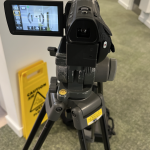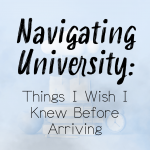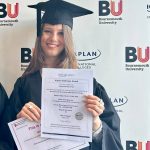One of the most stressful yet rewarding parts of the BA (Hons) Multimedia Journalism degree at Bournemouth University is news days. The format and intensity change every year but they give the best insight into what it will be like to work in a real newsroom environment in the future.
During the news days, students work together in seminars to produce live news bulletins for TV or radio. Almost everything is done on the day, which ups the pressure but means there’s always something for everyone to be working on – sourcing stories, securing interviews, writing scripts, going on location to film and record, editing, presenting, being the editor, and keeping on top of news as it comes in.
First year
News days seem daunting in the first year. Having never done anything like it before it seems unachievable after only studying journalism for a short amount of time, but that makes it even more satisfying at the end of the day when the news bulletins go live looking and sounding professional.
In first year of the course, news days happen in the second semester and are split between TV and radio. A few weeks are spent learning how to use the equipment, so by the time it gets to the respective news day for each unit, everyone is confident in their ability to use everything to create different styles of news packages and clips to put into the bulletin.
We always practice the week before, giving everyone a chance to get used to how everything works. There is only one afternoon bulletin to work towards for the TV news day, and two shorter ones for the radio one, so they work as the perfect starting point for what’s to come in second and third year.
Second year
News days begin almost immediately in second year, and there are more bulletins to produce. TV adds a short lunchtime bulletin before a longer one in the afternoon, and there is one every hour for radio with only one minute for most and a couple of longer, five minute bulletins. With experience from my first year still there, it’s a lot easier to get stuck in straight away and even though it’s been a few months since the first year news days, everyone falls back into their roles easily.
With more bulletins of different lengths, the challenge in the second year is mostly figuring out how to adapt stories to fit the time limits. This is when the news days feel valuable, as we get to experience last minute decision-making and pick up the ability to editorially judge what’s important to fit into a short bulletin and what’s the best way to tell that story.
There’s also a second radio news day, which acts as more of a feature length magazine style show and we get a lot of freedom to decide what we want to do with it as long as it’s local news-orientated. Again, the second year gives us a chance to level up from what we’ve done before but sets us up for one of the most important parts of the entire three years of the course.
Final year
Converged news days are essentially our final year exams. For two weeks (one being a practice) the entire course works together, broken up into seminars, not only on TV and radio but also across online and social media. For four days a week, we switch between these four mediums and make sure everyone is covering the same stories with their own angle on it to suit the media outlet we’re on for the day.
The editors for each seminar attend a news conference in the morning and afternoon, in preparation for lunchtime and afternoon TV and radio bulletins, and keep in close communication all day to make sure everyone is covering the same stories and sharing the different interviews and resources we’ve each managed to gather. Even though they’re the most challenging couple of week everything feels so worth it in the end when you’ve got dozens of stories out every day, especially when we manage to break a story before rival local news outlets.
We recently finished our converged news days and with every news day in the past leading to converged, once it’s over you’ve learned so much about journalism and about yourself as a journalist in such a short amount of time.
News days have been the best preparation for work after uni, they give us the most accurate insight into what we’ll be doing in a news room at a job, and are incredibly valuable not only because they help us develop skills across all areas of journalism and producing a news bulletin, we also leave with great contacts for future stories and jobs.


 A day in the life of a Bournemouth University Multimedia Journalism student
A day in the life of a Bournemouth University Multimedia Journalism student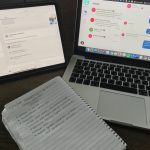 Journalism Under Lockdown: Second Semester
Journalism Under Lockdown: Second Semester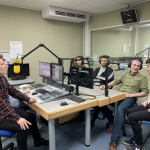 Why you should study Multimedia Journalism at BU
Why you should study Multimedia Journalism at BU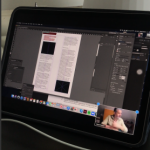 Making a Magazine Mid-Pandemic
Making a Magazine Mid-Pandemic
